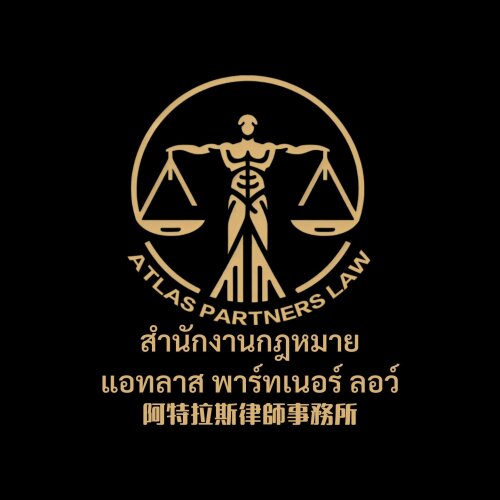Best Cannabis Law Lawyers in Chiang Mai
Share your needs with us, get contacted by law firms.
Free. Takes 2 min.
List of the best lawyers in Chiang Mai, Thailand
About Cannabis Law in Chiang Mai, Thailand
Thailand has taken significant steps in evolving its laws concerning cannabis, becoming the first Southeast Asian country to legalize medical cannabis in 2018. In 2022, new regulations came into effect, allowing broader use of cannabis for medical, commercial, and even personal usage under specific conditions. Chiang Mai, being a significant cultural and medical hub in Northern Thailand, offers various opportunities and challenges related to cannabis laws. Understanding these legal aspects is crucial for residents and visitors interested in this field.
Why You May Need a Lawyer
Engaging with cannabis, whether for medical, commercial, or personal use, involves navigating a complex legal landscape in Chiang Mai. You might need legal advice for several reasons, including:
- Understanding regulations for starting a cannabis-related business.
- Ensuring compliance with medical cannabis use guidelines.
- Addressing legal disputes related to cannabis transactions.
- Navigating the application process for relevant permits and licenses.
- Defending against criminal charges related to illegal possession or distribution.
Local Laws Overview
Cannabis laws in Chiang Mai are governed by national regulations with some local administrative nuances. Here are the key aspects:
- Medical Cannabis: Legal for specific health conditions; requires a prescription from a certified medical practitioner.
- Recreational Use: Private usage is decriminalized, but public use or causing nuisance is still punishable.
- Commercial Activity: Businesses can engage in cultivation, processing, and distribution of cannabis products but must comply with licensing requirements.
- Import and Export: Heavily regulated, requiring government permissions and compliance with stringent international guidelines.
Frequently Asked Questions
Can I legally grow cannabis in Chiang Mai?
Yes, both individuals and businesses can grow cannabis, but you must have the appropriate licenses and permissions from the Thai government.
Is it legal to use cannabis for recreational purposes?
While private recreational use has been decriminalized, it is not broadly legalized. Public consumption and possession without proper justification remain prohibited.
What are the consequences of illegal cannabis possession?
Penalties can include fines, imprisonment, or both, depending on the quantity and context of possession.
How can I acquire a medical cannabis prescription?
A certified healthcare provider must authorize cannabis usage for specific medical conditions under Thai law.
Are there any restrictions on THC content in cannabis products?
Yes, there are regulations concerning the allowable quantity of THC in both medical and commercial cannabis products.
Can tourists use cannabis in Chiang Mai?
Tourists must adhere to the same legal stipulations as locals, including medical usage being permissible with proper prescription and low-THC products.
What are the requirements for a cannabis business license?
Among others, the requirements include Thai citizenship or significant Thai ownership, financial stability, and compliance with safety standards.
Is CBD also regulated under the same laws as cannabis in Chiang Mai?
Yes, CBD is subject to regulations, particularly concerning THC content and claims regarding health benefits.
Are there particular areas in Chiang Mai with different cannabis regulations?
Local municipal guidelines may impose additional restrictions, especially concerning commercial activities and zoning.
Can I import cannabis seeds or products into Thailand?
Importing cannabis seeds or products is heavily regulated, requiring specific permits from the government.
Additional Resources
Several resources can offer further guidance on cannabis-related legal matters in Chiang Mai:
- Thailand Food and Drug Administration (FDA): Governs cannabis use regulations and permits.
- Ministry of Public Health: Offers information on medical cannabis regulations and licenses.
- Chiang Mai Chamber of Commerce: Provides assistance for business-related queries.
- Local legal firms specializing in cannabis law.
Next Steps
If you require legal assistance with cannabis-related issues in Chiang Mai, consider the following actions:
- Consult a local lawyer who specializes in cannabis law to understand your specific rights and obligations.
- Gather necessary documentation and permits relating to your situation to facilitate legal discussion.
- Be informed of both local and national cannabis laws to better understand the legal context.
- Reach out to relevant government bodies for guidance and verification of legal requirements.
Lawzana helps you find the best lawyers and law firms in Chiang Mai through a curated and pre-screened list of qualified legal professionals. Our platform offers rankings and detailed profiles of attorneys and law firms, allowing you to compare based on practice areas, including Cannabis Law, experience, and client feedback.
Each profile includes a description of the firm's areas of practice, client reviews, team members and partners, year of establishment, spoken languages, office locations, contact information, social media presence, and any published articles or resources. Most firms on our platform speak English and are experienced in both local and international legal matters.
Get a quote from top-rated law firms in Chiang Mai, Thailand — quickly, securely, and without unnecessary hassle.
Disclaimer:
The information provided on this page is for general informational purposes only and does not constitute legal advice. While we strive to ensure the accuracy and relevance of the content, legal information may change over time, and interpretations of the law can vary. You should always consult with a qualified legal professional for advice specific to your situation.
We disclaim all liability for actions taken or not taken based on the content of this page. If you believe any information is incorrect or outdated, please contact us, and we will review and update it where appropriate.










